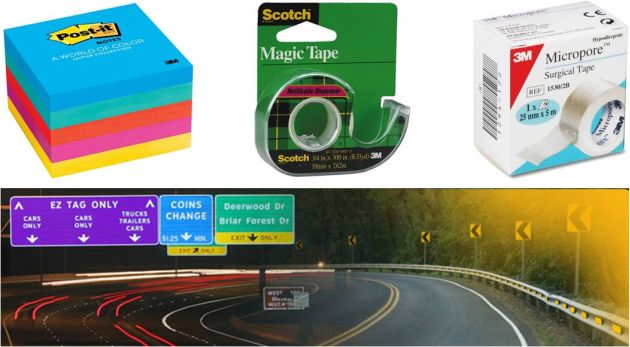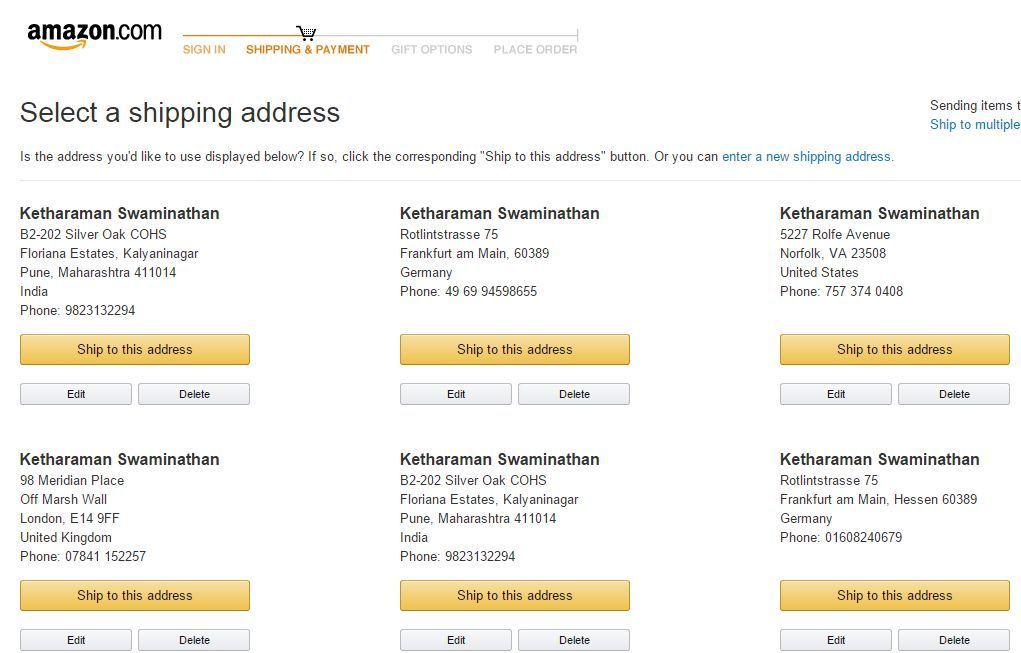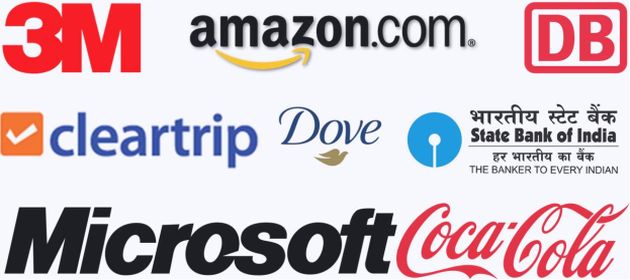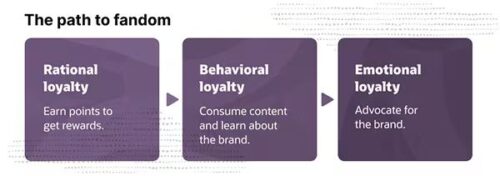Cult loyalty is the highest tier of loyalty. Consumers at this level patronize the brand forever, recommend it to everyone around them, and, most importantly, talk about the brand well outside the context of the product, as though the brand is a part of themselves.
What drives cult loyalty? Is it the product? Is it customer service? Is it data-driven engagement? Is it all of the above? Or, is it something else altogether?
In this blog post, I’m going to try and find the answer to this question by taking a few brands I love and examining if there’s a common set of factors that drive my near-cult loyalty status towards them.
#1. 3M

Post It. Scotch Tape. Scotchgard. Surgical Tape. Traffic Tape.
All these 3M products reflect a common theme: Technology must work for the welfare of mankind and innovation must add value to customers.
This resonates very strongly with the ethos I picked up at my alma mater IIT Bombay years ago.
For the sake of clarity, I don’t mean “welfare” in the sense of social welfare or corporate social responsibility.
To me, a brand provides welfare when it does one or more of the following things by basic charter: Alleviates pain; helps people to do their jobs better; lets people extract more value from their possessions.
3M products qualify for welfare provision:
- Art Fry invented Post It to anchor bookmarks in his hymnbook when he saw that the slips of paper used by choir members on various pages of the book would fall off in the middle of the concert, causing major chaos in the process!
- Scotch Tape helped people make simple repairs to household items during the days of the Great Depression when they couldn’t afford to throw stuff away
- 3M’s surgical tapes eliminate the need for invasive procedures to remove surgical sutures.
#2. Amazon

I’ve been shopping on Amazon for nearly 15 years in Germany, UK, USA and, finally, India, during which period I must’ve bought at least 100 items from it. Knock on wood, Amazon hasn’t even bungled a single order so far!
Amazon also remembers all my addresses across the four countries since circa 2000.
All this must be needing a lot of investment in technology and commitment to customer-centricity.
I realized how much only when I interacted with a leading IT company that manufactures computers, printers, storage systems and software. I’ve been this company’s customer for over a decade and registered on its website ages ago. However, every time I call its customer care telephone number, I’m asked to repeat my contact info. Its CSR told me that the company purges customer information once in three months apparently because it won’t allocate more storage space to store customer information for longer periods!
#3. SBI
India’s largest bank exhibits thorough knowledge of banking. Its bankers have guided me on various occasions with tricky money management questions e.g. Will I gain or lose money by breaking my fixed deposits and redepositing them at higher interest rates when a premature termination of that nature would attract penalties? SBI even made a snap offer for mortgage when I encashed my fixed deposits to fund a house purchase (click here for more). Full Disclosure: While selling various IT products and services to SBI over the years, I’ve had the pleasure of interacting with its extremely high-caliber employees.
Apart from 3M, Amazon and SBI, I’m extremely loyal to Cleartrip (Online Travel Agency), Coca Cola and Deutsche Bahn (German Railway).
- Cleartrip: In the past 15 years of booking air tickets and hotel rooms online, I’ve used Expedia, Make My Trip and HRS. But ever since I discovered Cleartrip eight years ago, I’ve ditched all the other websites. I also don’t Google for air tickets or hotels anymore – I simply head over to Cleartrip’s search box. I like the clean design of Cleartrip’s website. Once, when I’d canceled an air ticket booked on Cleartrip, I was pleasantly surprised to find the company following up with me to ensure that I’d received the refund in my bank account!
- Coca Cola: I’ve absolutely no idea why I’m fiercely loyal to Coke.
- Deutsche Bahn: I like DB for its high speed ICE trains with their great dining cars, awesome railway stations like Frankfurt Hauptbahnhof, hourly connections between major cities in Germany and for performing the stunning feat of operating a 500 km route without a single stop (e.g. Berlin-Frankfurt).

If I look at the above brands, good product is tablestakes across all of them. So, it’s certainly not the driver of cult loyalty.
Half of these brands don’t even know of my existence, let alone gather insights about me and engage with me with relevant, targeted offers. So, engagement based on data is also not the driver of cult loyalty.
But all these brands illustrate the use of technology for the welfare of mankind. All of them have a consistent track record of providing superior customer experience. The combination of their raison d être and operational excellence strongly resonates with my value system. This has created an emotional bond, which I believe is the driver of my cult loyalty towards these brands.
Does Amazon's work culture show that you can't both mollycoddle employees & delight customers at the same time? http://t.co/8s81Gpi7Qy?
— Ketharaman Swaminathan (@s_ketharaman) August 27, 2015
I concede that my acid test for cult loyalty might be quite subjective. I’m quite sure that each one of you has your own list of brands towards whom you exhibit cult loyalty and your own reasons for doing so. I’d love to know your thoughts in the comments below.
UPDATE DATED 18 JANUARY 2019:
I don’t know how I missed it earlier but DOCKERS is another one of my cult loyalty brands. I realized this while I was writing a review of my latest purchase of a pair of Dockers on Amazon.com recently. My association with this brand goes back over three decades. Here’s my DOCKERS story:
DOCKERS & ME
Sick of wearing blue jeans every day for five years during my engineering college days, I vowed to never wear them when I graduated in 1985. But, soon it became difficult to keep my vow because the alternatives were no good. That changed when I read about DOCKERS in a case study during my MBA days a couple of years later. I was immediately taken up with the product concept: Casual cotton trousers for people who feel they’ve outgrown denim. I immediately went and bought my first pair of DOCKERS and continued to do so for the next 20-odd years. Then, suddenly, DOCKERS shut shop in India even though the parent company Levi Strauss continued to operate in India. Luckily for me, I’ve many friends and relatives who make the USA to India trip at least once or twice a year. So, for the past few years, I order DOCKERS on Amazon USA, have it delivered to my friends / relatives in the US, and request them to hand carry it with them on their next visit to India. Long story short, DOCKERS is the only casual trouser I’ve been wearing for almost all of the last 34 years. And, thanks to DOCKERS, I’ve managed to stick to the vow I made in 1985 never to wear blue jeans again!
UPDATE DATED 12 MAY 2023:
Read this excellent article on Oracle Connect entitled Turn your customers into fans on fandom aka cult loyalty.
"What does the Formula One team Oracle Red Bull Racing have in common with a mattress company and an insurance provider? They all have fans." ~ https://t.co/HSQf1wlzOw.
Possible or height of Oracle Marketing? Possible – if I can be a fan of a bank, insurers can have fans.— Ketharaman Swaminathan (@s_ketharaman) May 12, 2023
Summarizing the key points from this article below:
When does a buyer become a fan? “A customer, even a satisfied customer, will happily leave to another company if it’s cheaper, better, faster,” says online marketing strategist David Meerman Scott, who with his daughter, Reiko, wrote Fanocracy, a book examining fans of sports teams, rock-and-roll bands, insurance companies – you name it.“Customers are transactional,” he says. However, a fan has an emotional attachment to a company, a product, an idea. It is much, much harder to get them to leave if you are trying to steal them away from another business.”
People want to do business on a personal level, Scott says. They also want to belong – to groups of like-minded people, communities, or tribes, whether they share an interest in riding motorcycles, insuring them affordably, or joining the tie-dyed Bedouins who follow what’s left of the Grateful Dead. Scott points to neuroscience, arguing that thousands of years of surviving woolly mammoths and the harshest of elements have hardwired humans to band together based on mutual likes.
…
Scott maintains that any brand, in any industry, can acquire fans—even insurance companies.
…
The path to fandom aka Fandom Maturity Model:
…
(While in-person interactions help foster loyalty) There are countless examples of digitally facilitated fandom (from a wide range of small, medium, and large brands across different industries):
- American Airlines: Twitter DM communicate on your terms not brand’s terms.
- Chewy.com pet supplies giant
- Meineke auto repair chain
- Denon sound systems
- Marvel Entertainment
- Sleep Number mattress
…
Danny Ashorineko at design agency DarkRoast says that fans will “fiercely defend” a brand against critics, but marketers shouldn’t overstep. Fans are promoters, he notes – but on their own terms, not yours.


